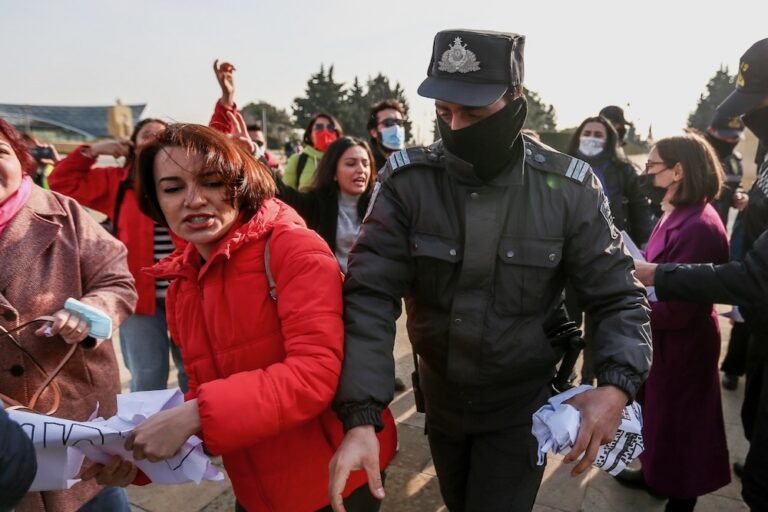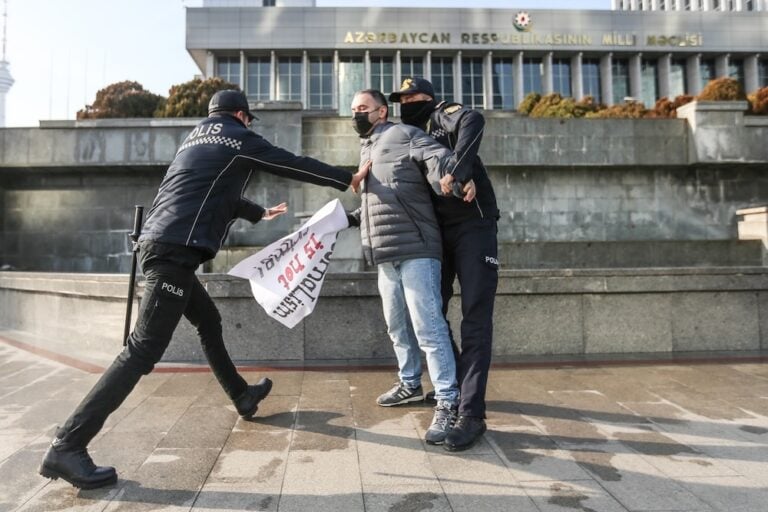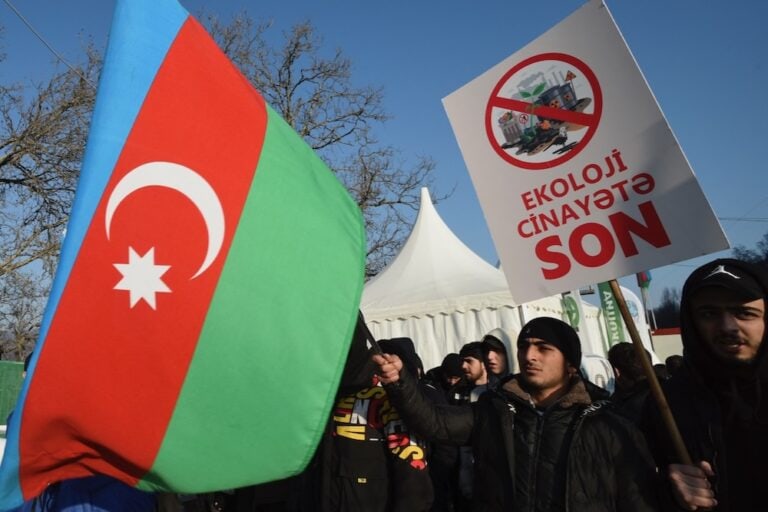IRFS believes that the plot is probably linked to the journalist's professional work - the last article written by Rafig Tagi was titled "Iran and the Inevitability of Globalization".
(IRFS/IFEX) – 21 November 2011 – The Institute for Reporters’ Freedom and Safety (IRFS) condemns the attack on writer-journalist Rafig Tagi and considers it a serious blow against freedom of expression in Azerbaijan.
The writer-journalist was stabbed near his home as he was returning from work on the evening of 19 November 2011. One of the doctors involved in the surgery, Abbas Abbasov, reported that following seven hours of surgery, doctors were able to save his life. Tagi suffered six stab wounds and has two broken ribs and a fractured shoulder blade, as well as damage to his stomach and diaphragm. The doctors had to remove his spleen. He is currently receiving treatment in the surgery department of the Clinical Medical Center, where his condition is serious but stable.
A criminal case has been launched by the Khatai District Prosecutor’s Office under Article 126.1 of the Criminal Code (deliberately inflicting grave bodily harm). The criminal case has been submitted to the Grave Crimes Department of the General Prosecutor’s Office, which will continue the investigation.
IRFS believes that the plot is probably linked to the journalist’s professional work. The last article written by Tagi (published on http://www.kulis.az on November 11) was titled “Iran and the Inevitability of Globalization”. The piece subjects the Iranian government, and the supreme religious leader, to harsh criticism.
IRFS speculates that there could be several potential motivations for this crime. It may have been committed by local radical religious followers or the intelligence services of the neighboring Islamic Republic of Iran, seeking to provoke internal political tension in Azerbaijan.
Nor does IRFS rule out the involvement of parties under the control of Azerbaijan’s ruling establishment; this plot could be an attempt to demonstrate the danger of decriminalizing defamation, that journalists left to their own devices fail to exercise proper prudence when publishing articles. Some representatives of the Azerbaijani authorities have recently made promises to the international community regarding the decriminalization of defamation, while other parties maintain that society is not ready for this. Supporters of the second idea say that if it is illegal to arrest journalists for their articles, then journalists could face “lynching”, or vigilante justice, which is far worse than jail.
In November 2006, Tagi was arrested for his article “Europe and Us”, published in “Sanat” newspaper. Muslim readers accused him of using inappropriate language towards the Prophet Mohammad, and preferring Christian values to Islamic ones. Grand Ayatollah Fazil Lankarani of Iran even delivered a fatwa, calling for his death in response to this specific article. Charged with inciting national and religious hatred, Tagi received three years in jail. He received a presidential pardon eight months later, at which point representatives of the ruling establishment stated that they had actually saved the journalist from death by arresting him. IRFS calls upon the Azerbaijani government to find and bring to justice the parties behind this plot.


